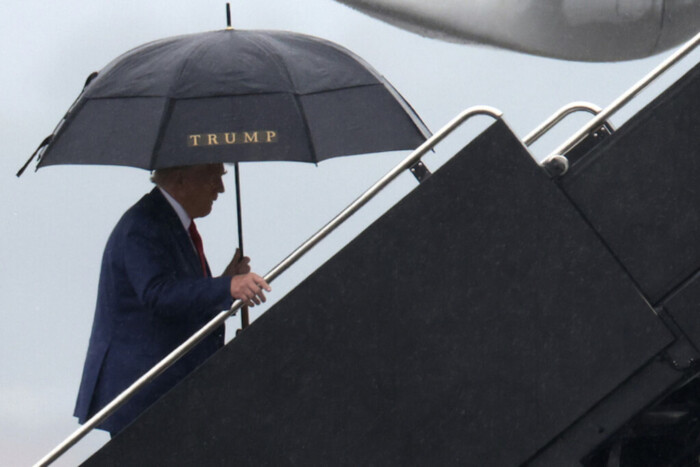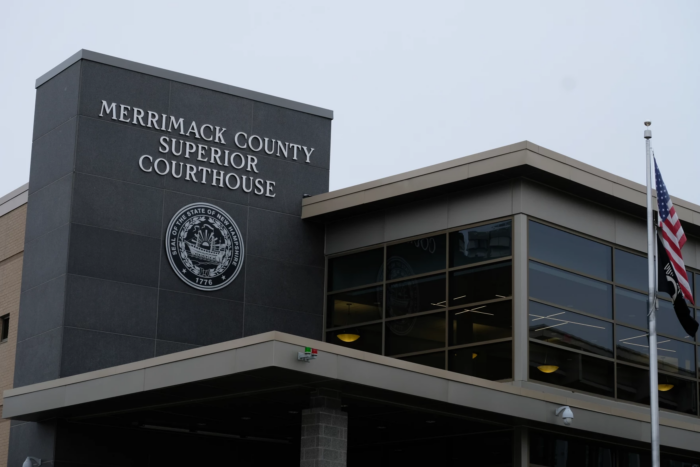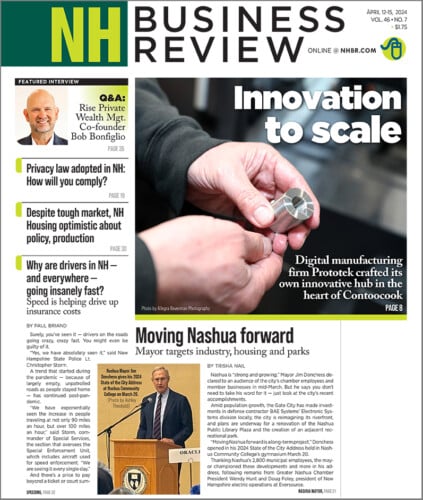Governor signs business tax measures into law
Says measures add to ‘tax-friendly environment’

Gov. Maggie Hassan has signed into law two tax bills, one that quadruples the up-front deductions for major capital expenses and another that alleviates the tax burden on businesses that go public and update the state’s entire business tax code.
The governor also signed a bill that regulates ride-sharing services statewide.
Senate Bill 239 will probably have the biggest impact on New Hampshire businesses, because it increases the maximum capital equipment deduction from $25,000 to $100,000. The cap still falls short of the federal deduction – known Section 179 deduction – which was recently raised to $500,000.
Some lawmakers advocated matching the federal limit, but the governor balked at that because of the estimated loss of $15.2 million in revenue. The bill she did sign is expected to cost the state $7.6 million, but not until 2017, when the bill goes into effect.
Another bill, SB 342, alleviates the tax burden on businesses that go public. Once known as the “Planet Fitness Bill.”
Hassan did veto a bill similar to SB342 last year, then dubbed the Planet Fitness bill, because it was initially proposed when the Stratham-based franchise went public and officials from the company threatened to move their headquarters out of state if it didn’t pass.
The bill would have exempted the state from taxing under the business profits tax the step-up in basis for firms that go public, but was soon broadened to pertain to any firms that sell shares to outside investors.
Hassan vetoed the bill because she said it wasn't fully vetted. Critics worried that it would enable firms from avoiding paying a capital gains tax.
This time, however, the governor said SB 342 would eliminate a “phantom tax” on startups. The step-up would be counted as a capital gain, giving businesses the option to take the gain on either end, depending on which situation save the firm the most money. The governor’s office opposed that option, but was willing to accept it if the Legislature agreed to limit the Section 179 deduction to $100,000.
Another measure, House Bill 1656 will allow businesses to avoid paying tax on real estate transfers between different entities with the same ownership. Though this had mainly been done in the past, recent interpretations of the law made some businesses jittery.
“Business owners, especially in their infancy, may purchase things like real estate in their personal names, and later on realize that there may be a justifiable reason to transfer that building into an LLC or other entity,” said Sen. Andy Sanborn, R-Bedford, sponsor of the measure. “Passage of this bill will allow New Hampshire businesses to make reasonable organizational changes without fear of significant, inappropriate taxes being assessed, in what is clearly not a sale.”
Both Democrats and Republicans took credit for passage of the bills.
Hassan signed them twice, once to meet the deadline (five days after the bill reached her desk) on Tuesday, and then ceremoniously on Wednesday at the office of Scribe Software in Manchester.
“Over the past few years, we have worked together to maintain our tax-friendly environment and to support innovative, job-creating businesses in New Hampshire,” Hassan said at the second signing. “By simplifying the tax-filing process, reducing taxes for New Hampshire businesses, and making it easier for companies to attract capital investments and invest in new equipment, these bipartisan bills will build on those efforts.”
Republicans also took credit for the package.
“These three bills are part of our comprehensive goal to reduce the burdens small businesses face, reducing business taxes, energy costs, high workers’ compensation and health care costs in our state,” said Senate Majority Leader Jeb Bradley, R-Wolfeboro. “It has long been one of the Senate’s top priorities to create a strong environment to run a small business and create jobs in the State of New Hampshire.”
Uber bill
Meanwhile, the governor also signed HB 1697, which regulates ride-sharing services statewide, overriding local regulation. It was a bill strongly supported by ride-sharing giant Uber.
The bill spells out operating requirements, such as employee safety and insurance requirements. Background checks would be conducted by a third party and would not include fingerprinting. It also allows a flexible commercial insurance policy, which would only go into effect when a driver is available or riding with a passenger.
The bill also adopted language that would define drivers as independent contractors.
Besides Uber, several business groups, including the Greater Manchester Chamber of Commerce, favored the bill.
“Today marks an important moment where New Hampshire has embraced innovation and options in enacting smart, sensible ride-sharing regulations,” said Cathy Zhou, Uber’s New Hampshire general manager.
Hinkle, the governor’s spokesman, issued a statement saying that “insuring that Uber and other ride-sharing companies have a permanent home here in New Hampshire will help to make our state more attractive for students, young professionals, entrepreneurs and visitors alike,” he said.
The governor also signed SB 155, which establishes a recovery fund for victims of the Financial Resources Mortgage fraud but doesn’t put any money into it and bills relating to in-stream flow, river management protection and an update of the state’s building code.










